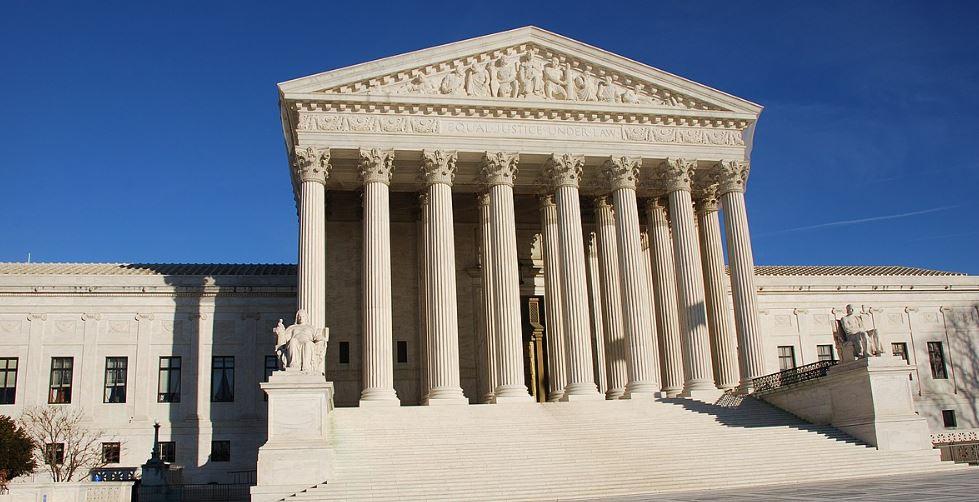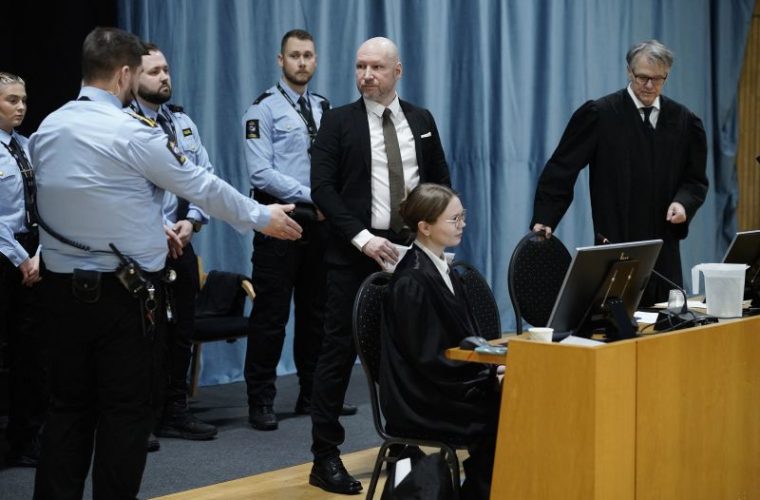
SCOTUS Attacked Indian Tribe Sovereignty in Castro-Huerta, and That’s a Bad Thing.
Indian tribe sovereignty has long been a much neglected, yet important, tool in decentralizing and limiting government power in the US. Since the early 19th century, it has been recognized by US courts and policymakers that—at least in theory—US governments have very limited jurisdiction within tribal lands beyond what is granted by treaties between the US and each individual tribe. Thus, in theory, tribal lands within the US function to limit the territorial sovereignty of both the US government and the state governments.
In practice, on the other hand, the realities of the tribes’ geopolitical weakness has long meant that both the US government and the US member state governments do whatever they want on tribal lands. Moreover, this US usurpation of tribal sovereignty was virtually unchallenged from the late nineteenth century arguably all the way up until the 1980s—greatly strengthened by the 1987 ruling California v. Cabazon Band of Mission Indians.
Nevertheless, in recent decades, federal courts and the US Congress have arguably ceded an increasing amount of independence to tribal governments.
[Read More: “What the Supreme Court Got Right in Its Indian Tribe Ruling” by Ryan McMaken]
Last month, however, the Supreme Court moved back in the wrong direction with its ruling in Oklahoma v. Castro-Huerta. Castro-Huerta is largely a reconsideration of 2020’s SCOTUS ruling in McGirt v. Oklahoma which had solidified tribal sovereignty in eastern Oklahoma in relation to the regime in Oklahoma City. Essentially, McGirt expanded tribal courts’ ability to prosecute crimes on tribal lands according to tribal law. Put another way, McGirt expanded tribal sovereignty by limiting the ability of state governments to impose state laws on tribal lands. (Regrettably, the ruling still granted federal courts some jurisdiction within tribal lands, although McGirt was paving the way for even greater tribal sovereignty in relation to the federal government as well.)
The Castro-Huerta ruling slams the brakes on recent expansions of tribal autonomy, however. It further expands the state government’s power in tribal lands and “clarifies” that tribal sovereignty is not as significant as the court had suggested in 2020. Indeed, the ruling suggests that tribal lands are not really independent of state jurisdiction at all. Worse yet, the ruling also maintains that the federal government will continue to have jurisdiction on tribal lands in a “partnership” with state government. Logically, then, if Indian lands are simply part of Oklahoma, this means federal courts and federal agents effectively now have an expanded role and jurisdiction within Oklahoma itself. Simply put, Castro-Huerta manages to expand state power in relation to tribal lands, and expands federal power in relation to the states.
For those of us interested in reining in government power, Castro-Huerta is certainly an unfortunate ruling.
The problem with the ruling—written by Justice Kavanaugh—was not lost on Justice Gorsuch who is, by far, the best judge on the Supreme Court in most areas, including tribal matters. Gorsuch penned a scathing (and informative) dissent to the ruling, stating,
The source of the Court’s error is foundational. Through most of its opinion, the Court proceeds on the premise that Oklahoma possesses “inherent” sovereign power to prosecute crimes on tribal reservations until and unless Congress “preempt[s]” that authority…. The Court emphasizes that States normally wield broad police powers within their borders absent some preemptive federal law.
But the effort to wedge Tribes into that paradigm is a category error. Tribes are not private organizations within state boundaries. Their reservations are not glorified private campgrounds. Tribes are sovereigns. And the preemption rule applicable to them is exactly the opposite of the normal rule. Tribal sovereignty means that the criminal laws of the States “can have no force” on tribal members within tribal bounds unless and until Congress clearly ordains otherwise…. After all, the power to punish crimes by or against one’s own citizens within one’s own territory to the exclusion of other authorities is and has always been among the most essential attributes of sovereignty…. Nor is this “notion,” … some discarded artifact of a bygone era. To be sure, Washington, Jefferson, Marshall, and so many others at the Nation’s founding appreciated the sovereign status of Native American Tribes…. [T]his Court’s own cases have consistently reaffirmed the point.
In fact, we hardly have to look much beyond 2019 and 2020 to find rulings buttressing claims of tribal sovereignty. McGirt itself, is one such case, and we can also note 2019’s Herrera v. Wyoming. In that case, the court ruled that treaties between the US government and tribal governments guarantee at least some level of sovereignty and autonomy—and that state governments cannot simply abolish this autonomy when convenient. Prior to this, state government had argued in effect that Indian reservations ceased to be independent when the state in which the reservation was located achieved statehood.
Gorsuch goes on to note that legal and constitutional barriers to state-level violations of tribal sovereignty are numerous:
To succeed [in showing that Oklahoma law supersedes tribal sovereignty], Oklahoma must disavow adverse rulings from its own courts; disregard its 1991 recognition that it lacks legal authority to try cases of this sort; and ignore fundamental principles of tribal sovereignty, a treaty, the Oklahoma Enabling Act, its own state constitution, and Public Law 280. … Oklahoma must pursue a proposition so novel and so unlikely that in over two centuries not a single State has successfully attempted it in this Court.
But what about limitations on federal abuses of tribal sovereignty? The unfortunate answer is indirectly acknowledged by Gorsuch when he notes tribal sovereignty can indeed be modified when “Congress clearly ordains otherwise.” In other words, Congress still has the ability to unilaterally modify the terms of relations between the federal government and the tribes. In more recent decades, Congress has tended to respect tribal sovereignty to an increasing extent, but if tribal sovereignty comes down to a mere act of Congress, that’s a pretty weak reed on which to hang any sort of true political independence.
[READ MORE: Feds to Indian Tribes: We (Probably) Won’t Prosecute You If You Grow Cannabis]
We need not go into the bad old days of Indian boarding schools and tribal land thefts of ninety or a hundred years ago to see examples of what happens when Congress does decide to ignore tribal sovereignty. Perhaps the most flagrant violation in living memory of many is the creation of Lake Sakakawea in the late 1940s. In that case, Congress decided to seize some of the best grazing land in North Dakota from three different tribes for the purposes of damming up yet another river. There was little the tribes could do, especially since these were the postwar, post-New Deal years during which the federal government enjoyed immense prestige and nearly untrammeled power. This was essentially the same government, after all, that put American citizens of Japanese descent in concentration camps—with the approval of the Supreme Court.
Had the tribes of North Dakota been able to oppose the Federal expropriation of land for Lake Sakakawea, this would have been a much-needed brake on federal power. Unfortunately, that never happened.
Ultimately, though, tribal sovereignty is a good thing in the same way federalism is a good thing: it decentralizes government power and allows for more local self-determination. Castro-Huerta and Kavanaugh’s reasoning, on the other hand, solidifies both state and federal power, pushing us toward greater centralization both regionally and nationally. That’s a mistake.




